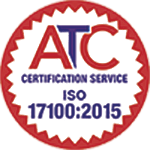The medical environment is one that attracts the most criticism if medical errors are made, especially if a loss of life is involved or a serious disability is inflicted on an individual. This happens only too often in many different medical settings including in a pharmacy when a pharmacist has written the wrong instructions on a bottle of tablets due to the ineligibility of a doctor’s handwriting. This sort of situation is easily avoidable had the physician taken a minute or two more in writing the instructions.
Language Barriers can Lead to Misunderstanding
Other errors that take place only too often are those where language barriers exist between a patient and a medical professional. These are easily avoidable if medical environments were to have interpreters available when a misunderstanding between a patient and a medical professional is likely to take place because of a language barrier.
As people move to other places in the world, whether for a holiday, to take up a job or to visit relatives there are times when a visit to a hospital or doctor may have to take place whether it’s due to an accident or a sudden outbreak of illness. Sometimes people choose to go to a country where they have some knowledge of the language but this isn’t always the case so they have to depend upon hand signals to communicate with others.
Sharing Knowledge in the Medical Field Requires Translations
Not all medical break throughs take place in large western countries that speak and use English. When a scientist discovers something new it often stays in the hands of those that can understand the language of the research report. Scientists simply often don’t realise that it’s important to get vital research translated into key languages so the world can benefit. Language in medical fields can be translated into all the worlds’ languages by professional medical translators so that knowledge can be shared.
Interpreters Reduce the Barriers to Language in the Medical Field
Interpreters made available in medical facilities help to ensure there are no language barriers between patient and doctor so minimising the chance of medical mistakes which could lead to lengthy and costly lawsuits. There are many ways that interpreters can be used ranging from telephone and Skype communication to face to face encounters depending upon the availability of interpreters in certain languages in a particular medical setting.



